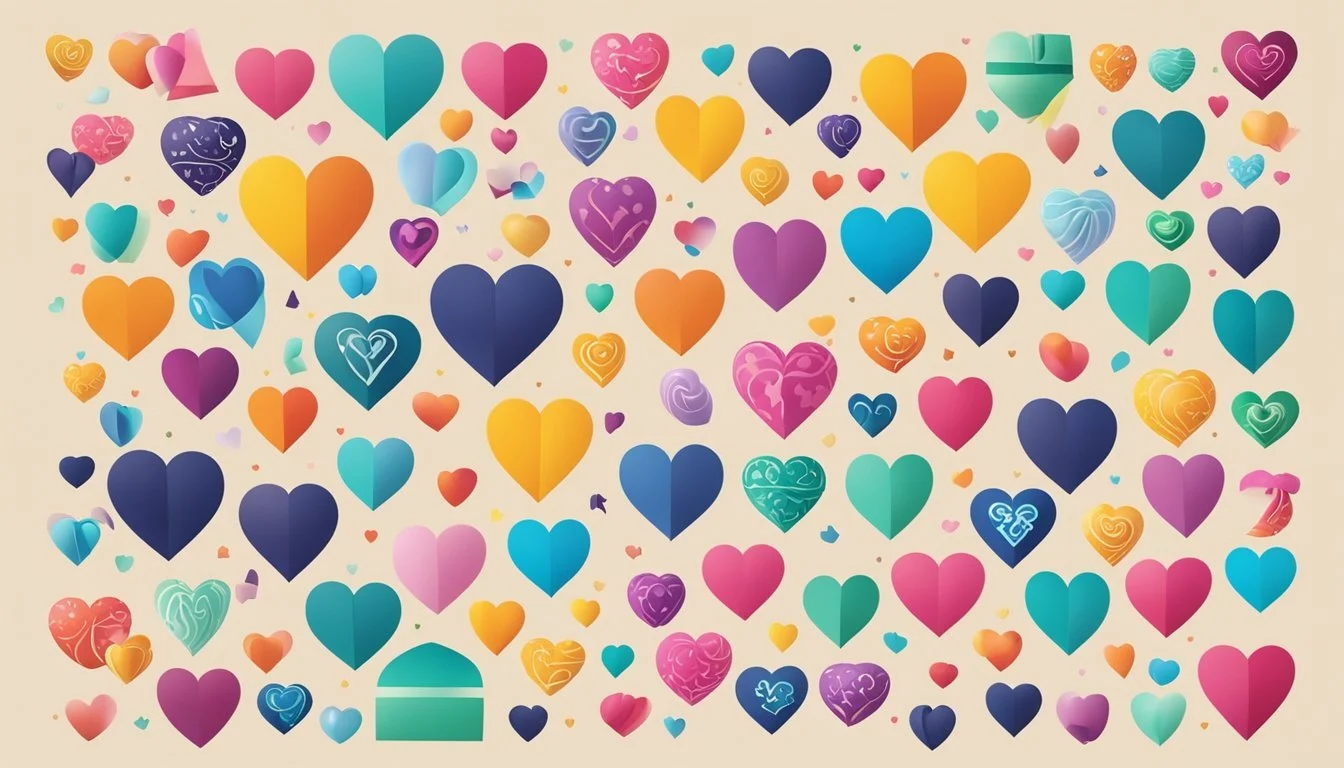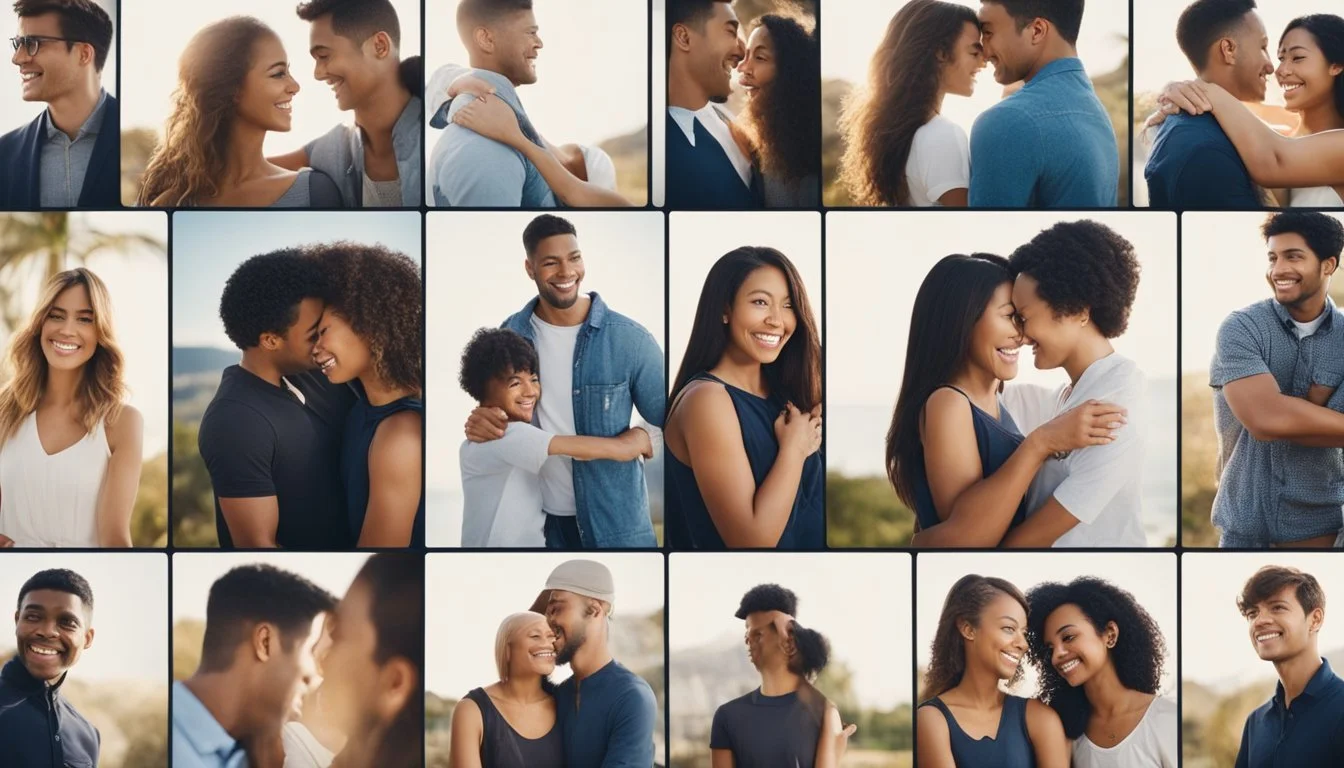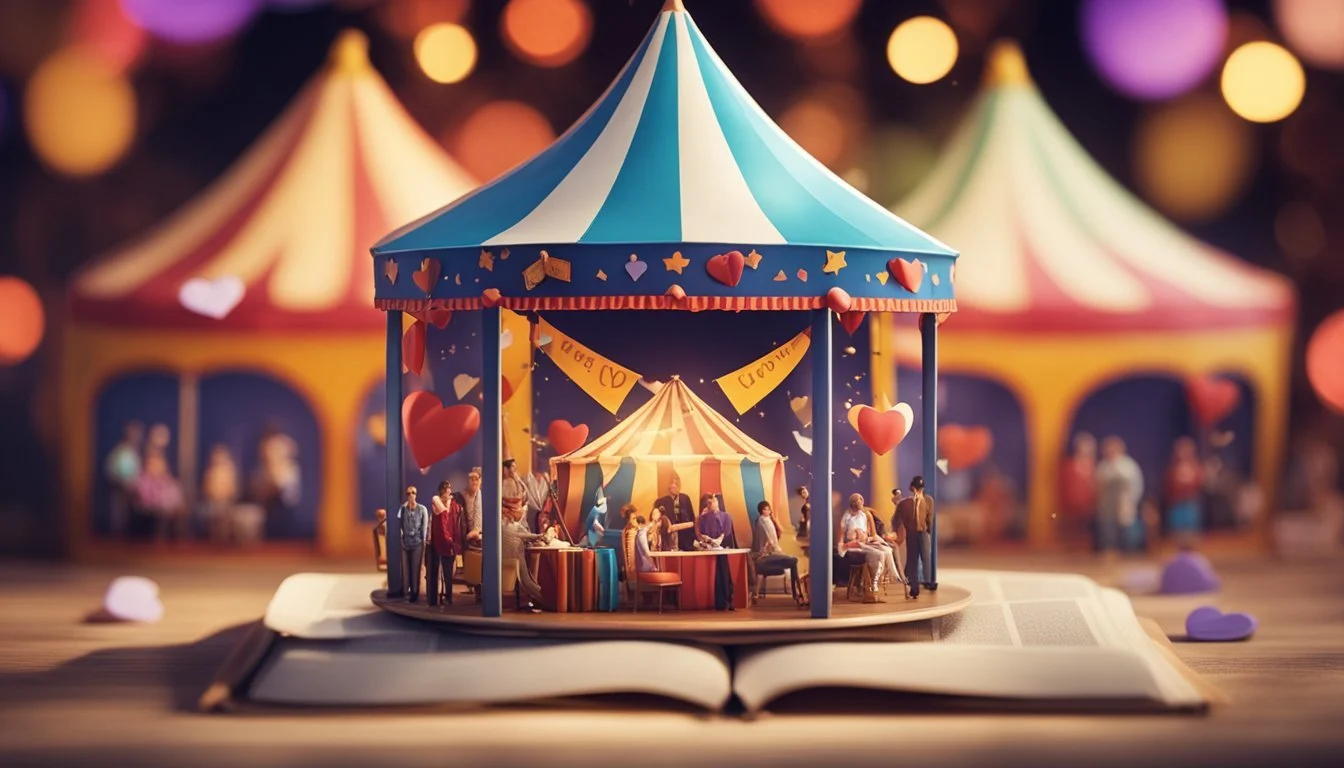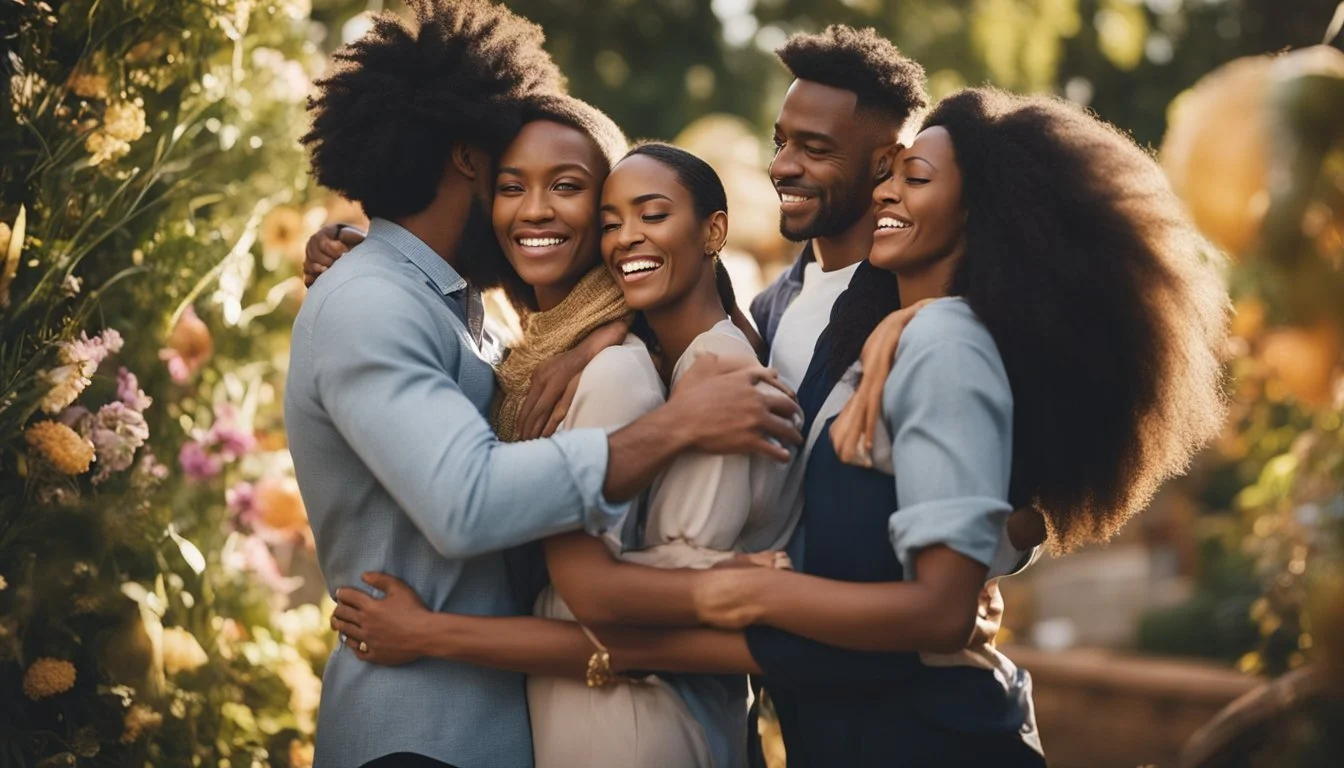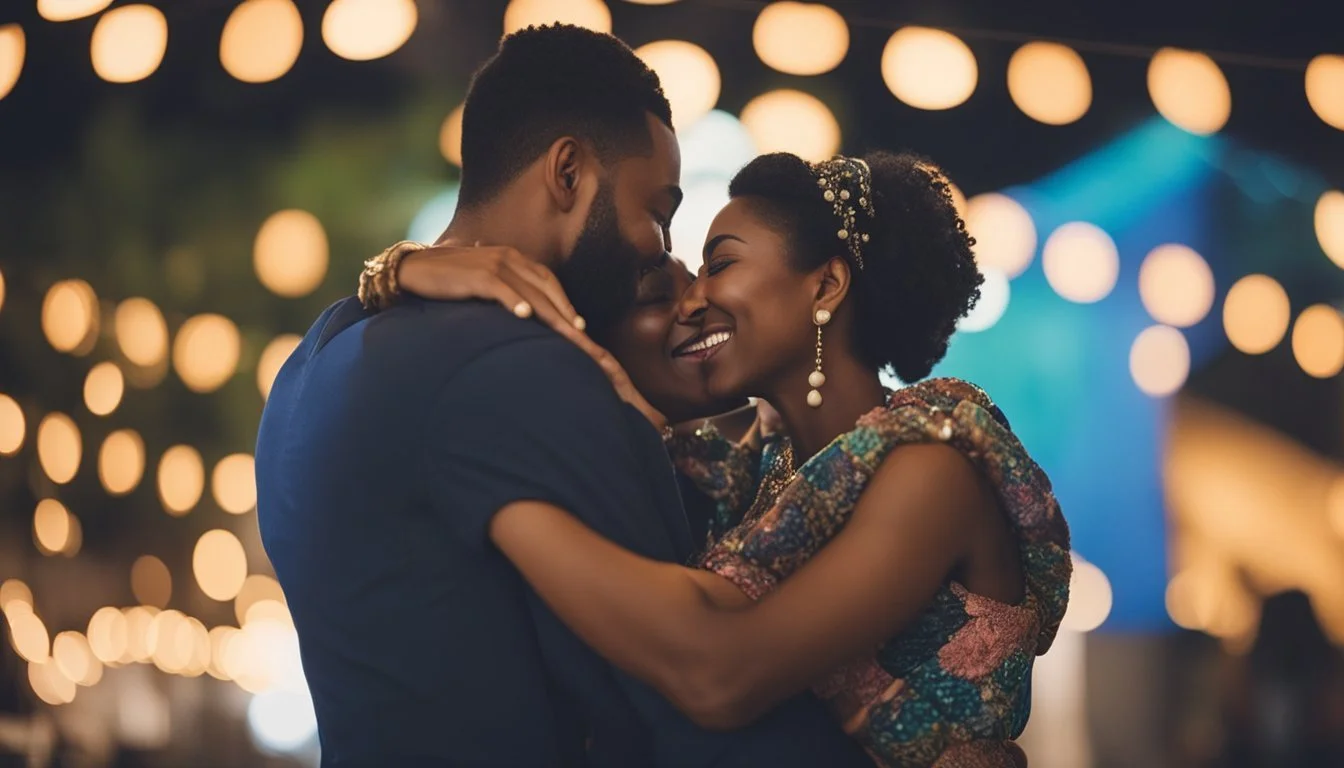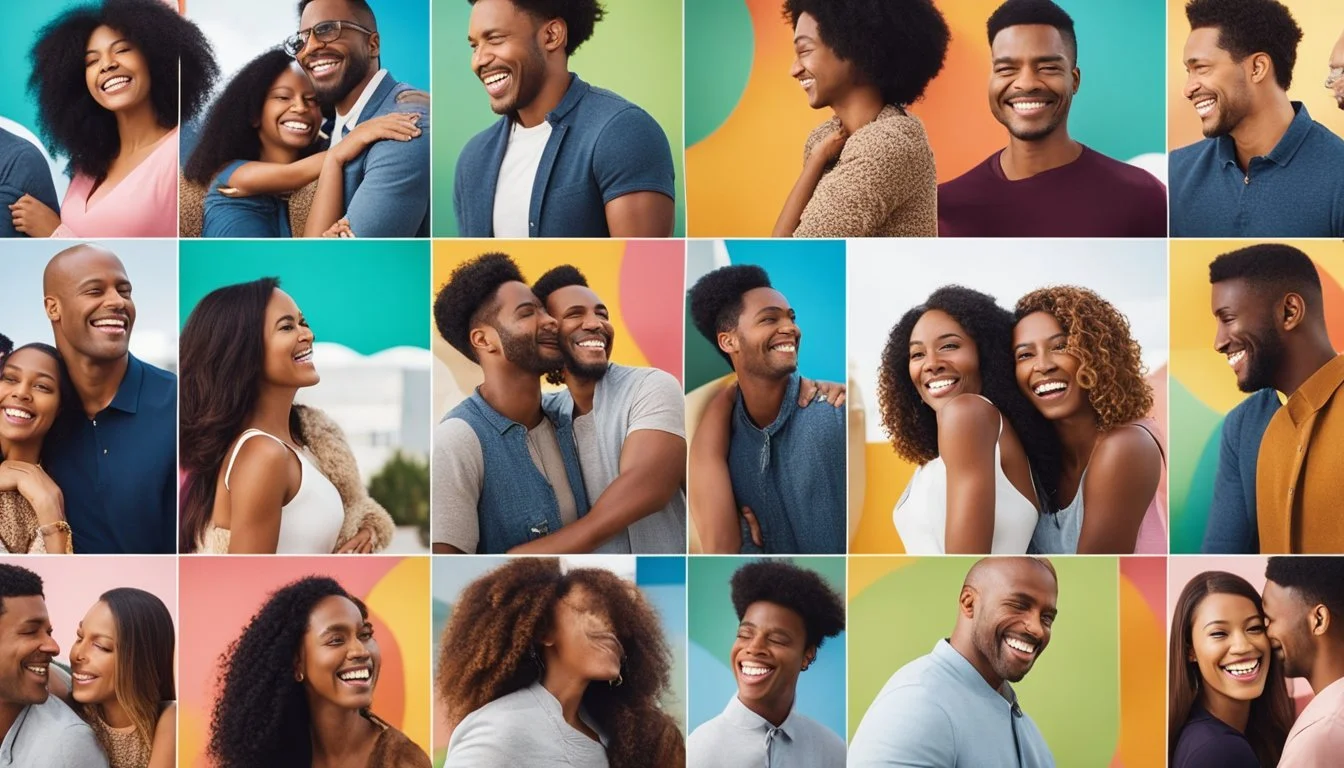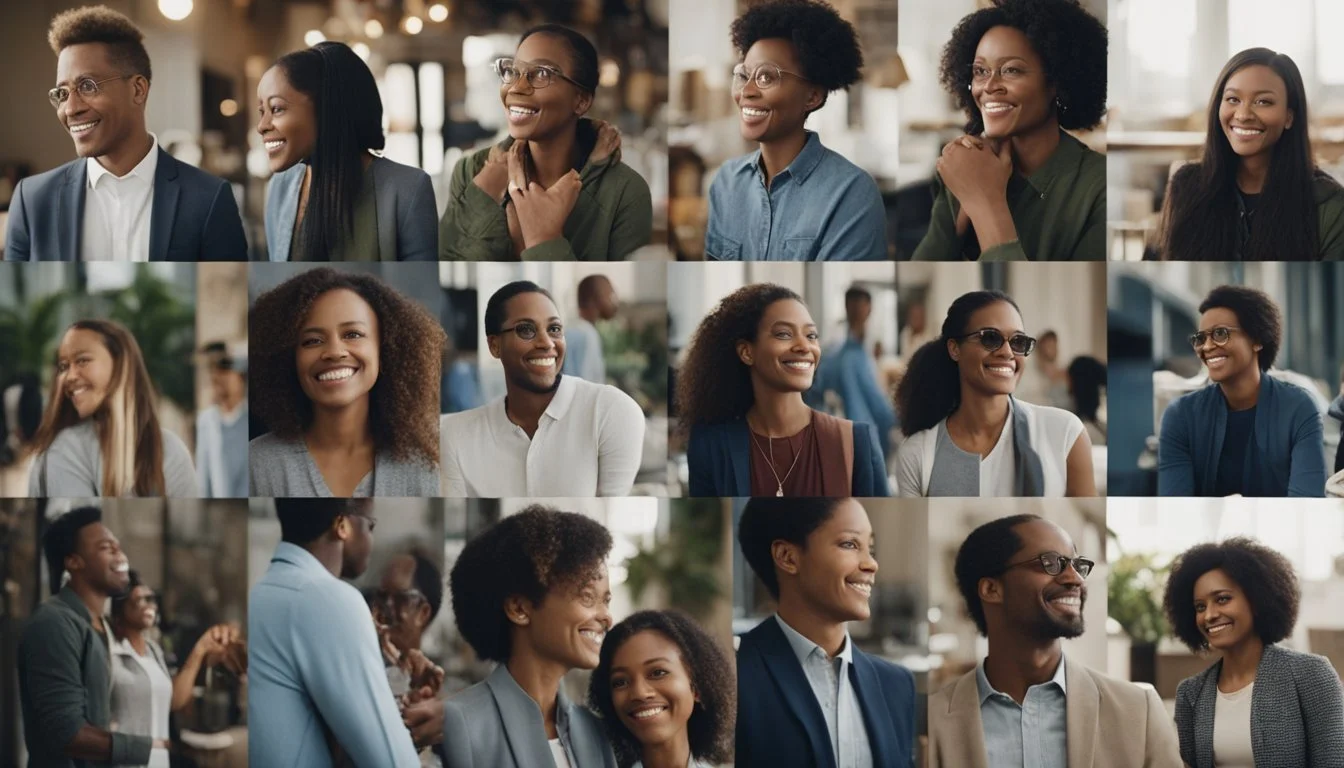10 Documentaries That Celebrate the Diversity of Love Experiences
A Journey Through Real-Life Romance
Documentaries have long been a powerful medium for exploring the complexities of human relationships and experiences. From historical perspectives to contemporary stories, these films offer viewers a window into the diverse tapestry of love across cultures, identities, and generations.
These 10 documentaries showcase the multifaceted nature of love, highlighting both universal themes and unique personal journeys. By featuring a range of voices and experiences, they challenge stereotypes and broaden our understanding of the many forms love can take. Through intimate portraits and thought-provoking narratives, these films celebrate the power of connection and the resilience of the human spirit.
1) The Lovers and the Despot (2016)
"The Lovers and the Despot" tells an extraordinary true story that blends romance, politics, and cinema. This documentary focuses on the experiences of South Korean filmmaker Shin Sang-ok and actress Choi Eun-hee.
The couple's lives took a dramatic turn when they were kidnapped by North Korean agents in 1978. They were brought to North Korea on the orders of Kim Jong-il, who was not yet the country's leader.
Kim, a film enthusiast, forced Shin and Choi to make movies for the North Korean regime. The couple produced 17 films during their captivity, which lasted for several years.
The documentary uses interviews, archival footage, and dramatic reenactments to recount this bizarre episode. It offers insights into Kim Jong-il's personality and his obsession with cinema.
Shin and Choi's eventual escape adds a thrilling element to this already incredible narrative. Their story sheds light on the power of art and the resilience of the human spirit under extreme circumstances.
2) Paris Is Burning (1990)
Paris Is Burning offers a captivating glimpse into New York City's drag ball culture of the 1980s. Director Jennie Livingston's documentary showcases the vibrant LGBTQ+ community, particularly focusing on Black and Latinx individuals.
The film explores themes of identity, chosen family, and self-expression through interviews with ball participants and performances. It highlights the creativity and resilience of marginalized groups facing societal challenges.
Paris Is Burning introduces viewers to iconic figures like Pepper LaBeija, Willi Ninja, and Venus Xtravaganza. Their personal stories provide insight into the complexities of gender, race, and class within the ballroom scene.
The documentary captures the origins of voguing and other dance styles that have since influenced mainstream pop culture. It also examines the concept of "realness" - the ability to blend into heteronormative society despite facing discrimination.
Paris Is Burning remains a significant work in LGBTQ+ cinema, preserving an important chapter of queer history and inspiring future generations of artists and activists.
More information on Paris Is Burning
3) A Secret Love (2020)
"A Secret Love" chronicles the extraordinary 70-year relationship between Terry Donahue and Pat Henschel. The documentary reveals their journey of love and resilience, having kept their romance hidden for decades.
Terry Donahue played in the All-American Girls Professional Baseball League, which inspired the film "A League of Their Own." She met Pat Henschel in 1947, marking the beginning of their lifelong partnership.
The film explores the challenges the couple faced, living in an era when same-sex relationships were taboo. It delves into their decision to finally come out to their families in their 80s.
Directed by Terry's great-nephew Chris Bolan, "A Secret Love" offers an intimate look at the couple's everyday life. It captures tender moments as they navigate aging and health issues together.
The documentary celebrates the enduring power of love and the courage to be true to oneself. It stands as a testament to the LGBTQ+ individuals who paved the way for greater
4) Circus of Books (2019)
Circus of Books tells the unlikely story of Karen and Barry Mason, a straight couple who ran a gay pornography shop in Los Angeles for decades. The documentary explores how this Jewish family became unexpected allies to the LGBTQ+ community.
The Masons took over Circus of Books in 1982, transforming it into a landmark establishment. The store served as a safe haven for gay men during the AIDS crisis and became a cultural hub for the LGBTQ+ community.
Directed by Rachel Mason, the couple's daughter, the film offers an intimate look at her parents' double life. It reveals how they kept their business a secret from friends and family while supporting their gay customers and employees.
Circus of Books sheds light on an important piece of LGBTQ+ history. It showcases the power of acceptance and the impact of allies in fostering community during challenging times.
More information on Circus of Books
5) Disclosure (2020)
"Disclosure" examines the representation of transgender individuals in film and television throughout history. Directed by Sam Feder, this groundbreaking documentary features insights from prominent trans actors, writers, and activists.
The film explores how media portrayals have shaped public perceptions of the trans community. It highlights both problematic depictions and positive representations that have emerged over time.
Laverne Cox, Lilly Wachowski, and Chaz Bono are among the notable figures who share their perspectives on trans representation in Hollywood. Their personal experiences provide valuable context to the film's analysis.
"Disclosure" emphasizes the importance of authentic storytelling and the impact of media on trans individuals' self-perception. It encourages viewers to critically examine the media they consume and its influence on societal attitudes.
By showcasing a diverse range of trans voices, the documentary celebrates the progress made in representation while acknowledging the work still needed for true inclusivity in the entertainment industry.
More information on "Disclosure" (IMDB)
6) The Death and Life of Marsha P. Johnson (2017)
This documentary explores the life and mysterious death of Marsha P. Johnson, a prominent figure in the LGBTQ+ rights movement. Directed by David France, the film delves into Johnson's activism and her impact on the gay liberation and transgender rights movements in New York City.
The documentary chronicles Johnson's involvement in the Stonewall uprising and her co-founding of Street Transvestite Action Revolutionaries with Sylvia Rivera. It highlights her role as a self-described "street queen" and her tireless efforts to advocate for marginalized communities.
France's film also investigates the circumstances surrounding Johnson's death in 1992. Her body was found in the Hudson River, and while initially ruled a suicide, many believe foul play was involved. The documentary follows activist Victoria Cruz as she seeks answers about Johnson's untimely passing.
Through interviews and archival footage, the film paints a portrait of Johnson as a charismatic and influential figure in LGBTQ+ history. It sheds light on the violence and discrimination faced by transgender individuals, particularly those of color.
More information on The Death and Life of Marsha P. Johnson
7) Crazy, Not Insane (2020)
Alex Gibney's documentary "Crazy, Not Insane" explores the complex psychology behind violent criminals. The film follows forensic psychiatrist Dr. Dorothy Otnow Lewis and her groundbreaking research into the minds of murderers.
Dr. Lewis challenges conventional beliefs about criminal behavior. She argues that many violent offenders have experienced severe childhood trauma, abuse, or brain injuries that contribute to their actions.
The documentary features interviews with infamous killers, including Ted Bundy. These conversations provide chilling insights into the minds of those who commit heinous acts.
Gibney's film raises thought-provoking questions about the nature of evil and the origins of violence. It encourages viewers to consider the role of mental illness and past experiences in shaping criminal behavior.
"Crazy, Not Insane" offers a unique perspective on love and empathy. It demonstrates Dr. Lewis's compassionate approach to understanding even the most troubled individuals.
8) RBG (2018)
"RBG" offers an intimate look at the life and career of Ruth Bader Ginsburg, the iconic U.S. Supreme Court Justice. The documentary explores her groundbreaking legal work advocating for gender equality and women's rights.
The film showcases Ginsburg's loving partnership with her husband Martin, highlighting their deep mutual respect and support. Their relationship defied traditional gender roles of their time, with Martin often taking on domestic responsibilities to support Ruth's career.
"RBG" reveals how Ginsburg's personal experiences with discrimination shaped her passion for justice. It traces her journey from law school, where she was one of only nine women in her class, to becoming the second woman appointed to the Supreme Court.
The documentary features interviews with Ginsburg, her family, friends, and former clients. It paints a portrait of a brilliant legal mind and cultural icon whose commitment to equality extended to her own marriage and family life.
9) Are You Proud? (2019)
"Are You Proud?" is a documentary that explores the history of LGBTQ+ Pride in the United Kingdom. Directed by Ashley Joiner, the film combines rare archive footage with interviews from activists and participants.
The documentary covers landmark achievements of the Pride movement, from early struggles to more recent progress. It features stories from a diverse range of voices within the LGBTQ+ community.
"Are You Proud?" examines key historical campaigns and current activism. The film provides insight into how the movement has evolved over time and the challenges it continues to face.
Viewers can expect to see discussions on important issues like AIDS and hate crimes. The documentary also highlights the ongoing fight for equality and recognition.
10) No Ordinary Man (2020)
No Ordinary Man explores the life of jazz musician Billy Tipton, a transgender man who gained recognition in the 1940s and 1950s. The documentary takes an innovative approach to telling Tipton's story.
Rather than relying on traditional biographical techniques, directors Aisling Chin-Yee and Chase Joynt incorporate contemporary trans actors auditioning to play Tipton. This creates a unique dialogue between past and present.
The film celebrates Tipton's musical legacy while examining broader issues of gender identity and representation. It challenges simplistic narratives about trans lives and highlights the complexity of Tipton's experiences.
No Ordinary Man features interviews with Tipton's son Billy Jr., as well as notable figures in the trans community. These perspectives provide valuable insights into Tipton's impact and the evolving understanding of transgender identities.
Through its thoughtful exploration of Billy Tipton's life, No Ordinary Man offers a nuanced look at love, identity, and self-expression across generations.
Cultural Representations Of Love
Documentaries exploring love across cultures reveal fascinating differences in romantic norms and expressions. They highlight how cultural backgrounds shape relationship dynamics and expectations.
Exploring Diverse Cultural Norms
In many Asian cultures, arranged marriages remain common. Documentaries often contrast this tradition with Western ideas of romantic love. Some films examine the shift towards "love marriages" in countries like India.
Public displays of affection vary widely between cultures. Films may show how hand-holding is taboo in some societies but expected in others. Cultural norms also influence courting rituals, from formal chaperoned dates to casual group outings.
Marriage customs differ greatly across the world. Documentaries might feature polygamous unions in certain African tribes or same-sex partnerships gaining acceptance in various countries.
Impact Of Cultural Backgrounds On Love Narratives
Cultural backgrounds significantly shape individual love stories. Documentaries often showcase couples navigating intercultural relationships, highlighting both challenges and rewards.
Family involvement in romantic decisions varies by culture. Some films depict the struggle between filial duty and personal desire in choosing a partner. Others show how extended families play a central role in relationship dynamics.
Religious beliefs heavily influence love narratives in many cultures. Documentaries may explore how faith-based restrictions or expectations impact courtship and marriage practices.
Language and communication styles also differ across cultures, affecting how love is expressed. Films might demonstrate how direct versus indirect communication norms influence romantic interactions.
Navigating Interpersonal Relationships
Interpersonal relationships across cultures require understanding, empathy, and adaptability. Effective communication and awareness of potential challenges are key to building strong connections.
Communication Styles Across Cultures
Different cultures have unique communication norms. Some prioritize direct communication, while others value indirect approaches. In Western cultures, eye contact often signifies attentiveness and respect. However, in some Asian cultures, prolonged eye contact may be considered rude or aggressive.
Verbal and non-verbal cues vary widely. For example, nodding in many Western countries indicates agreement, but in some parts of Greece and Bulgaria, it can mean "no." Hand gestures also carry different meanings across cultures.
Active listening is crucial. This involves paying attention to tone, body language, and context, not just words. Asking clarifying questions helps prevent misunderstandings and shows respect for cultural differences.
Challenges In Multicultural Relationships
Multicultural relationships face unique obstacles. Language barriers can lead to misinterpretations and frustration. Partners may need to learn each other's languages or find a common language to communicate effectively.
Cultural values and beliefs about relationships, family, and gender roles can clash. For instance, expectations about public displays of affection or the involvement of extended family in decision-making may differ significantly.
Time perception varies across cultures. Some cultures view time as flexible, while others adhere strictly to schedules. This can cause tension in planning and punctuality.
Religious differences can impact daily life, holidays, and major life decisions. Open discussions about religious practices and mutual respect are essential for navigating these differences successfully.

